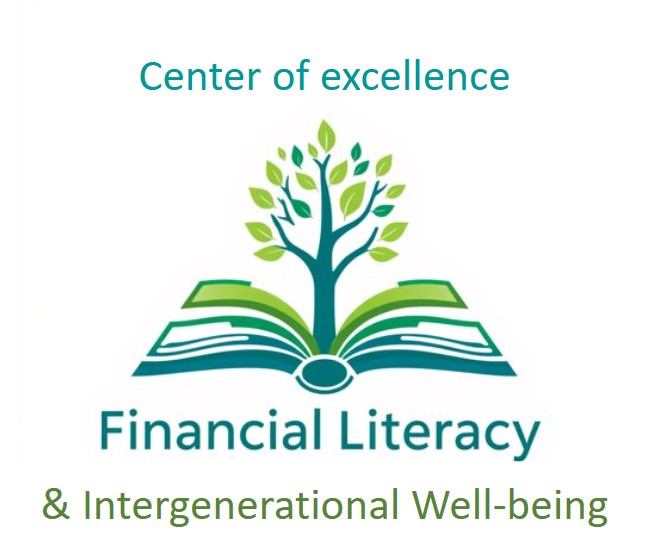The Influence of Perceived Usefulness, Trust, and Risk on Loyalty in the TikTok Shop: Test of Consumer Satisfaction as a Mediation Variable
 Abstract Views:
5638 times
Abstract Views:
5638 times
 PDF Downloads:
4076 times
PDF Downloads:
4076 times
Abstract
Purpose: This study aims to analyze the effect of perceived usefulness, trust and risk on loyalty with consumer satisfaction as a mediating variable at the TikTok Shop.
Method: This study's research method was a questionnaire survey. The population in this study were consumers born in 1997 – 2012 (generation Z) and had used the TikTok Shop ≥ 2 times. The sample in this study was 232 respondents. The sampling technique uses a non-probability sampling technique with a purposive sampling approach with an analytical tool, namely PLS-SEM (Partial Least Square - Structural Equation Modeling).
Results: The results of data analysis with a significance of 0.05 indicate that the effect of perceived usefulness on customer satisfaction and loyalty has no positive effect. The effect of trust on consumer satisfaction has a significant effect, but the effect of trust on consumer loyalty does not have a significant effect. The effect of risk on customer satisfaction and loyalty has a significant effect. The influence of consumer satisfaction mediates consumer loyalty.
Downloads
References
Anshori, M., & Iswati. (2017). Metodologi Penelitian Kuantitatif. Airlangga University Press.
APJJI. (2022). Profil Internet Indonesia 2022. Asosiasi Penyelenggara Jasa Internet Indonesia (APJJI), June. http://apjii.or.id/v2/upload/Laporan/Profil Internet Indonesia 2012 %28INDONESIA%29.pdf
Ayu, R. (2018). Persepsi Risiko terhadap Kepuasan melalui Kepercayaan dalam E-Marketplace. Jurnal Ekobis Dewantara, 1(11), 23–32.
Basyar, K., & Sanaji, S. (2018). Pengaruh Persepsi Kemudahan dan Persepsi Manfaat Terhadap Niat Beli Ulang Secara Online dengan Kepuasan sebagai Variabel Intervening. BISMA (Bisnis Dan Manajemen), 8(2), 204. https://doi.org/10.26740/bisma.v8n2.p204-217
El-Adly, M. I. (2019). Modelling The Relationship Between Hotel Perceived Value, Customer Satisfaction, and Customer Loyalty. Journal of Retailing and Consumer Services, 50(xxxx), 322–332. https://doi.org/10.1016/j.jretconser.2018.07.007
Estikowati, Astuti, W., & Respati, H. (2020). The Influence of Experiential Marketing and Relationship Marketing on Hotel Customer Loyalty. East African Scholars Journal of Economics, Business and Management, 3(9), 723–730. https://doi.org/10.36349/easjebm.2020.v03i09.003
Faizah, N., & Sanaji, S. (2022). Pengaruh Perceived Ease of Use dan Perceived Usefulness terhadap Loyalitas dengan Trust sebagai Variabel Intervening Terhadap Penggunaan Aplikasi Warung Pintar. Jurnal Ilmu Manajemen, 10(1989), 946–959. https://doi.org/https://doi.org/10.26740/jim.v10n3.p946-959
Giao, H. N. K., Vuong, B. N., & Quan, T. N. (2020). The Influence of Website Quality on Consumer’s E-Loyalty Through the Mediating Role of E-Trust and E-Satisfaction: An Evidence from Online Shopping in Vietnam. Uncertain Supply Chain Management, 8(2), 351–370. https://doi.org/10.5267/j.uscm.2019.11.004
Gloria, T. V., & Achyar, A. (2018). Effects of Externalities and Flow on Perceived Usefulness, Satisfaction, and Loyalty in Mobile Instant Messaging Promotion. ASEAN Marketing Journal, 8(2), 1. https://doi.org/10.21002/amj.v8i2.9261
Haque, M. G. (2020). Pengaruh Kualitas Produk dan Harga Terhadap Keputusan Pembelian. E-Mabis: Jurnal Ekonomi Manajemen Dan Bisnis, 21(1), 31–38. https://doi.org/10.29103/e-mabis.v21i1.476
Harahap, B. I., Nazer, M., & Andrianus, F. (2020). Analisis Faktor-Faktor yang Mempengaruhi Loyalitas Konsumen dalam Belanja Online di Kota Solok. Technology Acceptance Model (TAM), 11(1), 1–9. https://doi.org/https://doi.org/10.56327/jurnaltam.v11i1.811
Heriyanto, E., & Susanto, E. H. (2020). Pengaruh Perceived Quality Terhadap Customer Loyalty dengan Perceived Risk dan Customer Trust Sebagai Variabel Mediasi pada PT. XYZ. Jurnal Manajemen Bisnis Dan Kewirausahaan, 4(3), 29. https://doi.org/10.24912/jmbk.v4i3.7912
Iriani, S. S., & Andjarwati, A. L. (2020). Analysis of Perceived Usefulness, Perceived Ease of Use, and Perceived Risk Toward Online Shopping in The Era of Covid-19 Pandemic. Systematic Reviews in Pharmacy, 11(12), 313–320. https://doi.org/10.31838/srp.2020.12.50
Kasmir. (2017). Custimer Service Ecxellent: Teori dan Praktik. Pt Rajagrafindo Persada.
Khasbulloh, A. H. K., & Suparna, G. (2022). Effect of Perceived Risk and Perceived Value on Customer Loyalty through Customer Satisfaction as Intervening Variables on Bukalapak Users. European Journal of Business and Management Research, 7(4), 22–28. https://doi.org/10.24018/ejbmr.2022.7.4.1472
Latifah, N., Widayani, A., & Normawati, R. A. (2020). Pengaruh Perceived Usefulness dan Trust Terhadap Kepuasan Konsumen pada E- Commerce Shopee. BISMA: Jurnal Bisnis Dan Manajemen, 14(1), 82. https://doi.org/10.19184/bisma.v14i1.13550
Marakanon, L., & Panjakajornsak, V. (2017). Perceived Quality, Perceived Risk and Customer Trust Affecting Customer Loyalty of Environmentally Friendly Electronics Products. Kasetsart Journal of Social Sciences, 38(1), 24–30. https://doi.org/10.1016/j.kjss.2016.08.012
Marza, S., Idris, I., & Abror, A. (2019). The Influence of Convenience, Enjoyment, Perceived Risk, and Trust on The Attitude Toward Online Shopping. Advances in Economics, Business and Management Research, 64(May), 589–598. https://doi.org/10.2991/piceeba2-18.2019.40
Priansa, D. J. (2017). Perilaku Konsumen dalam Persaingan Bisnis Kontenporer. In Alfabeta. Alfabeta.
Rachbini, W., Hatta, I. H., & Evi, T. (2019). Determinants of Trust and Customer Loyalty on C2C E-Marketplace in Indonesia. International Journal of Management, 10(3), 119–129. https://doi.org/10.34218/IJM.10.3.2019.012
Soliha, E., Aquinia, A., Hayuningtias, K. A., & Ramadhan, K. R. (2021). The Influence of Experiential Marketing and Location on Customer Loyalty. Journal of Asian Finance, Economics and Business, 8(3), 1327–1338. https://doi.org/10.13106/jafeb.2021.vol8.no3.1327
Solimun, S., & Fernandes, A. A. R. (2018). The mediation effect of customer satisfaction in the relationship between service quality, service orientation, and marketing mix strategy to customer loyalty. Journal of Management Development, 37(1), 76–87. https://doi.org/10.1108/JMD-12-2016-0315
Widayat, W., & Artika, S. Y. (2019). Kualitas Situs Web, Kepercayaan, Kepuasan dan Loyalitas Pembelanja Muda di Toko Online. Jurnal Akademika, 17(1), 1–8. https://doi.org/http://dx.doi.org/10.51881/jam.v17i1.149
Wilujeng, F. R., Rembulan, G. D., Andreas, D., & Tannady, H. (2019). Meningkatkan Kepuasan Pelanggan pada Dua Bisnis E-Commerce Terbesar di Indonesia dengan Menggunakan Analisis Servqual dan IPA. Prosiding Seminar Nasional Sains Dan Teknologi, 1–9.
Wiradarma, I. G. N., & Suasana, I. G. A. K. G. (2019). Peran Kepuasan Pelanggan Memediasi Pengaruh Kualitas Pelayanan terhadap Loyalitas Pelanggan Pull & Bear Kuta – Bali. E-Jurnal Manajemen, 8(6), 3987–4016. https://doi.org/10.24843/EJMUNUD.2019.v08.i06.p25%0AISSN
Yufizar, A. F. (2017). Pengaruh Experiental Marketing dan Brand Trust terhadap Kepuasan Konsumen dan Loyalitas Pelanggan Hotel Grand Jatra Pekanbaru. JOM Fekon, 4(1), 939–953.

This work is licensed under a Creative Commons Attribution 4.0 International License.
Articles published in Journal of Entrepreneurship & Business are licensed under a Creative Commons Attribution 4.0 International (CC BY) license. You are free to copy, transform, or redistribute articles for any lawful purpose in any medium, provided you give appropriate credit to the original author(s) and the journal, link to the license, and indicate if changes were made.
Authors submitting to this journal agree to make their work freely available under the CC BY 4.0 license, ensuring broad dissemination and reuse. The full license details can be accessed at https://creativecommons.org/licenses/by/4.0/.
This ensures that they receive the maximum dissemination because there are no barriers to access. This license allows readers to disseminate and reuse the paper, but always requires them to grant the authors and the first publication full credit.
While JEB upholds ethical publishing standards, the responsibility for ensuring originality and compliance with copyright regulations lies with the authors. The journal is not liable for any legal claims related to the content of published articles.
For further inquiries, please contact the editorial team.

 DOI:
DOI:











